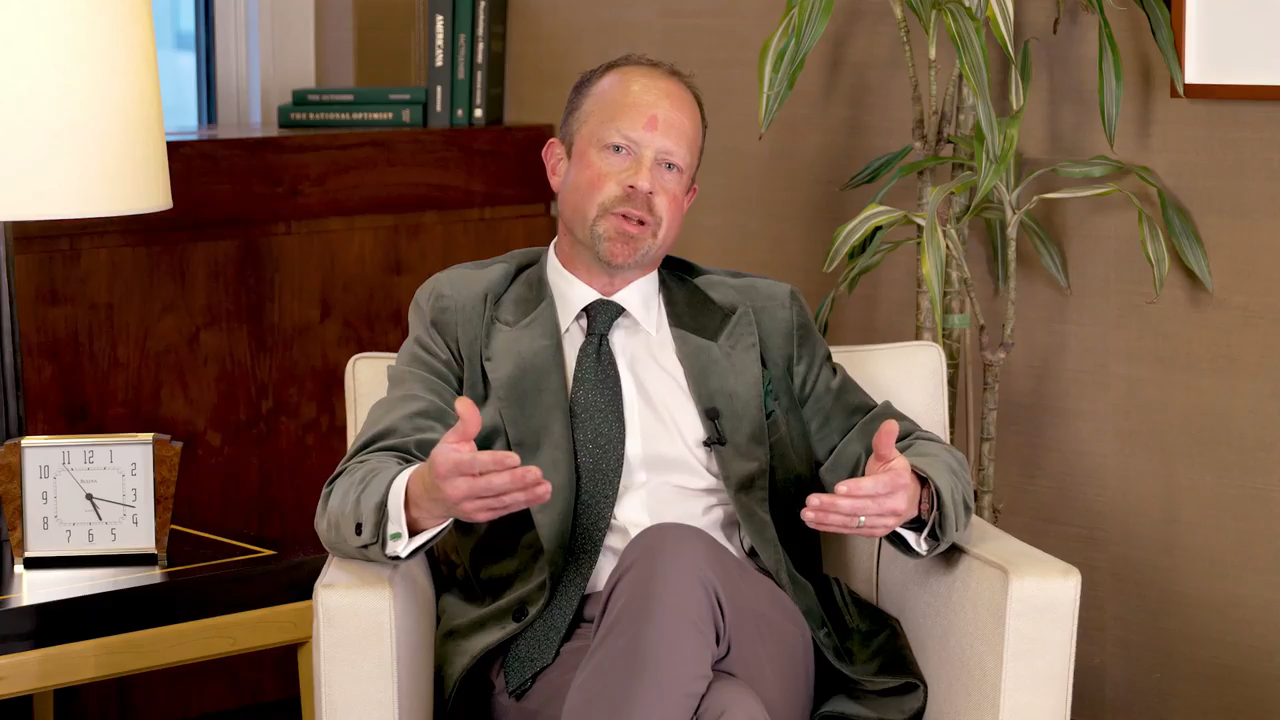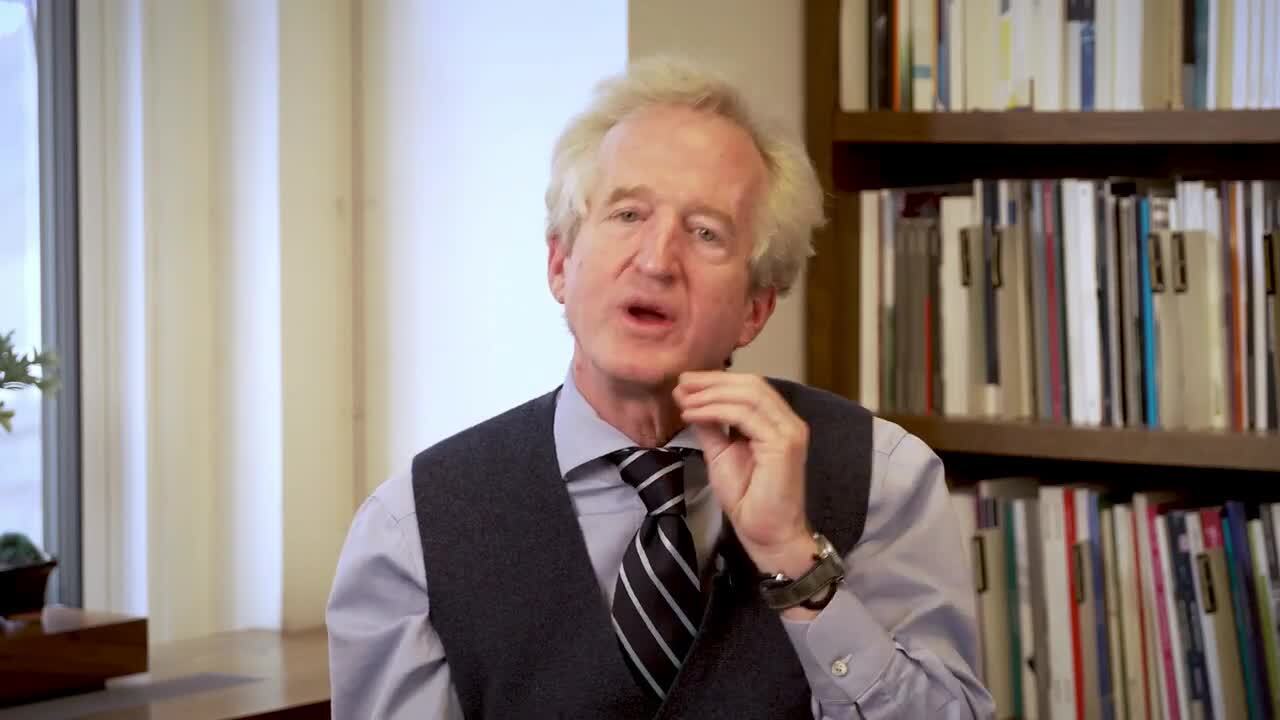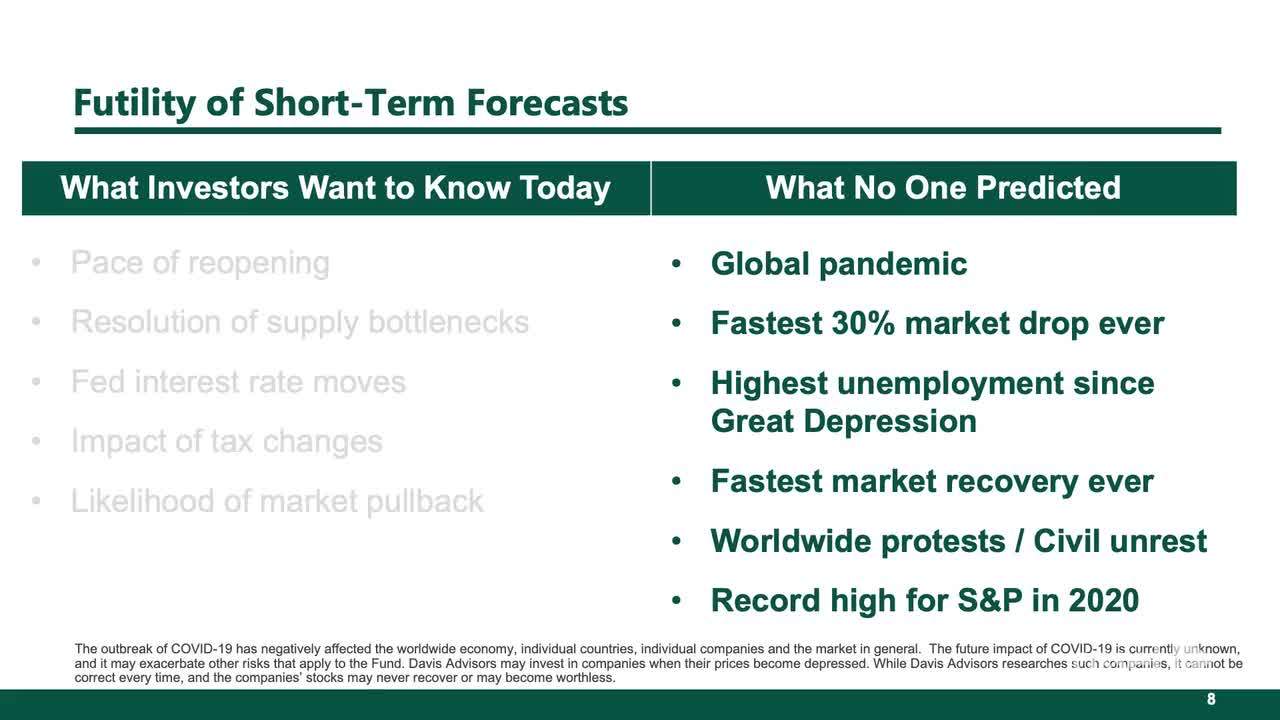In a world of significant transformation, it's not about risk on / risk off. It's about aligning with durable, adaptable, growing businesses and not overpaying
Transcript
Chris Davis:
Seems I can't turn on the TV without hearing somebody talk about risk on or risk off. Really this sort of a crazy way to think about investing.
Risks are always with us. They are part of the background radiation that investors have to manage. And what people often do is they misunderstand the biggest risk which is trying to go out to the sidelines, right?
In my lifetime, time. The purchasing power of a dollar is down over 90%. It was not a safe place to hide.
So when you think about navigating uncertainty, when you think of all of the risks that you're going to hear about when we go from this sort of complacent era that we've been in to a time when people are somehow terrified about something that is going on in the world, the real question you'll ask yourself
then is, was I prepared? So you can't predict but you can't prepare. It's not that you can avoid. You can't find a safe harbor to wait it out on the sidelines.
You're going to go through those storms. You need to be prepared. And that's why our long-term focus on the durability of the underlying businesses, their earnings power, their ability to adapt their ability to weather the storms and the uncertainty, to weather disruption, to weather geopolitical storms
and unexpected events. because those things are a part of the landscape. The only thing that changes is people's awareness of them.
And we've somehow been in an environment when people talk about risk, but there's been complacency. And as we move into an environment where people are going to feel the risk and be afraid, that is the time that the preparation that we do today in building a portfolio of resilient companies, we think
will serve as well. If we think about the big long-term risks out there, of course, we think often about the deficit and the national debt that is a long-term concern.
Danton Goei:
We've certainly seen the national debt grow as a percent of GDP in 2008. It was 64 percent and after the financial crisis, good 100 percent and then today after COVID is 122 percent.
So we know that over the last several years it's more than doubled as a percent of the GDP. And so that is meaningful, that's important because that also increases the risk of inflation.
And we know there's all kinds of forces out there that are pushing towards higher inflation that we've seen over the last decade.
So geopolitics leading to disruptions in commodities and spikes in prices. Of course, the de-globalization trend and ensuring tariff and trade wars.
those are all very inflationary and so as investors we need to think about those long-term risks and think about companies that have pricing power that despite the increase in costs that they're seeing because of inflation they have that pricing power that adaptability to this at higher inflationary
environment in the future so that is hugely important and then of course today valuation and momentum and market concentration are all things that investors should think of a lot.
The market today at well over 20 times earnings, that is much higher than historical levels, and the concentration level today at about the top 10 stocks are about 36% of the overall S&P 500.
That is a huge percentage. And that's not a percentage that we've seen for a long time. In fact, the last time those levels were seen were the early 1970s.
So, 50 years ago, within Nifty 50. So, that level of concentration is also very worrisome, and it should push you to more selectivity and looking for value opportunities beyond, you know, the top 10 stocks out there that are trading at high valuations.
So, I think those three things in terms of the deficit, the inflation risk, and also momentum and valuation are big concerns and risk out there that as investors we need to be mindful of.
More Videos

A Closer Look inside DUSA (6:09)

Undervalued & Underappreciated – The Opportunity Today in Select Financials (4:05)


